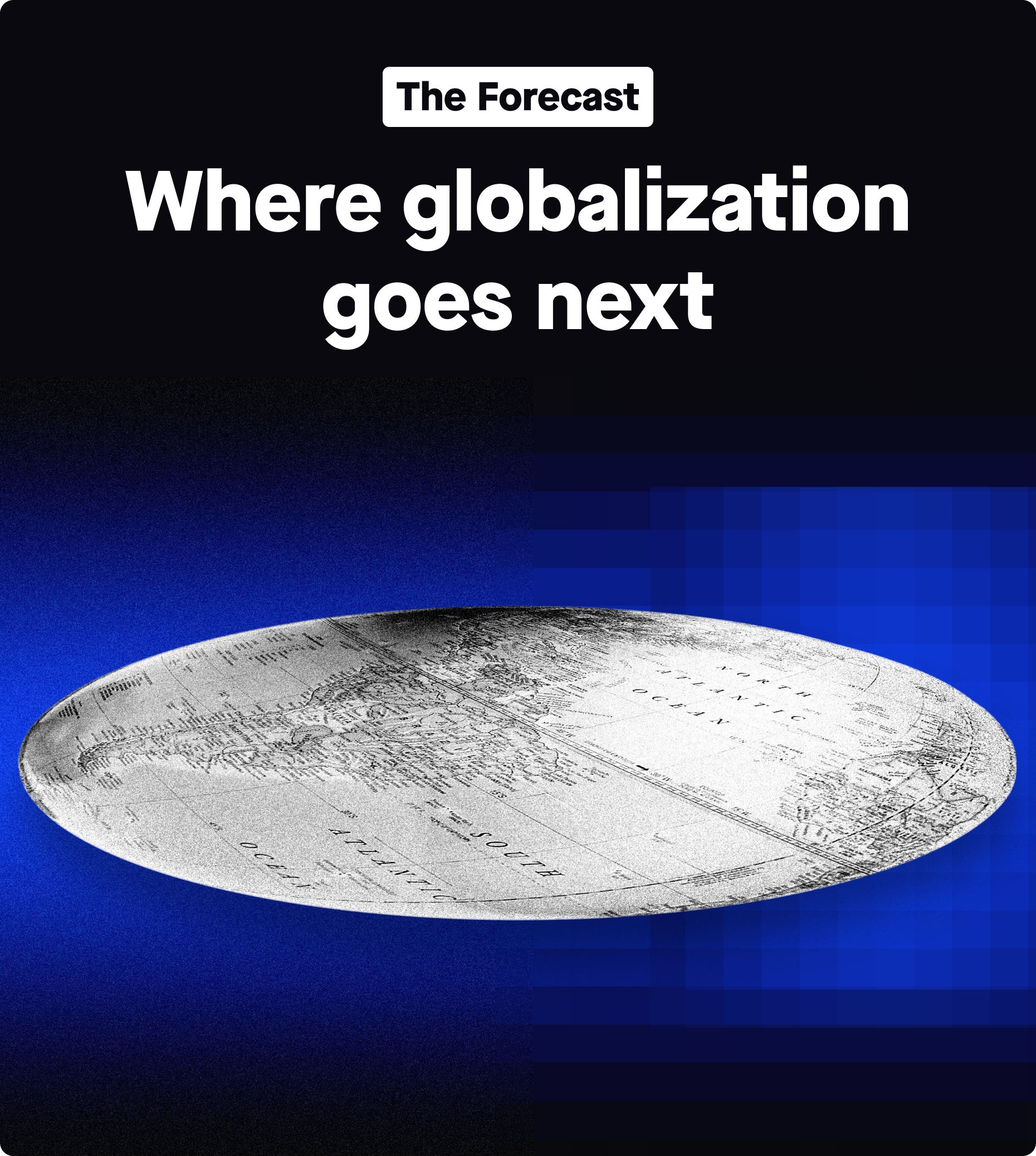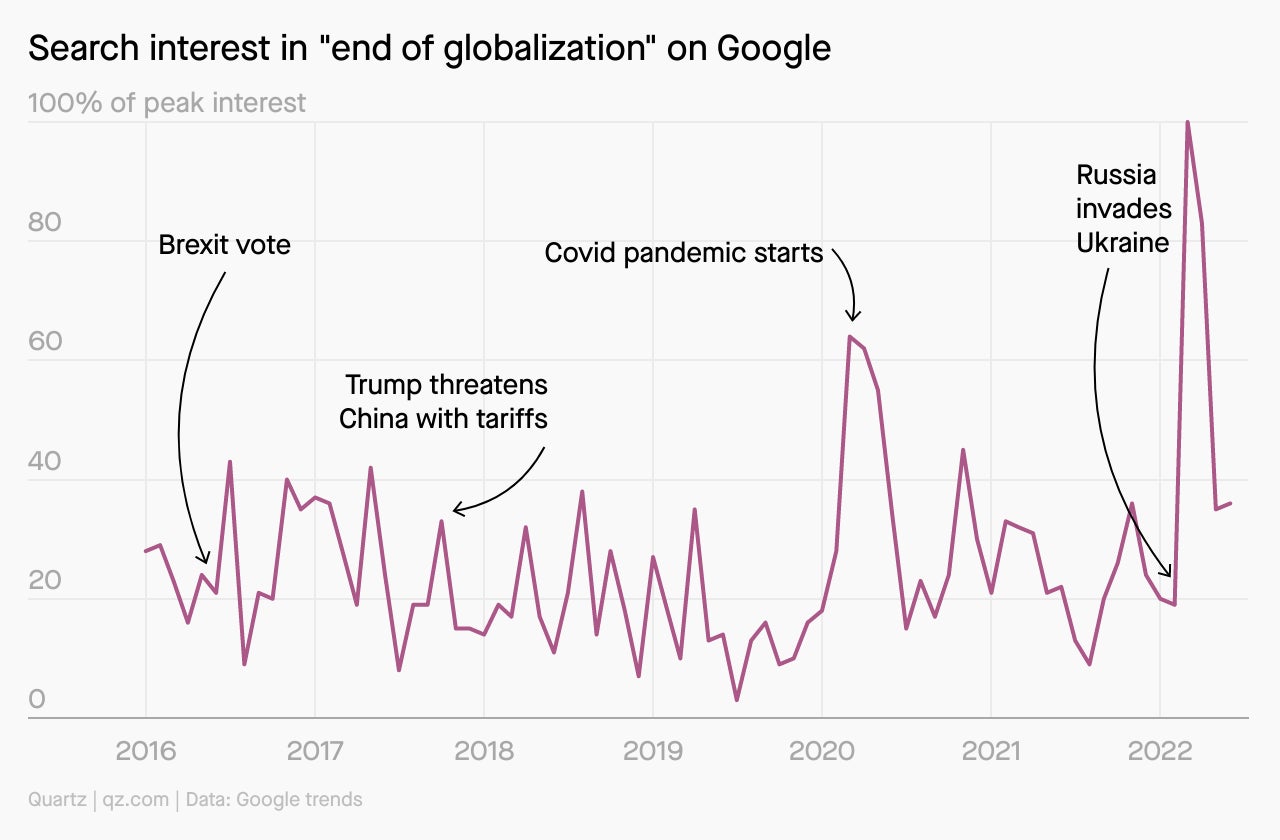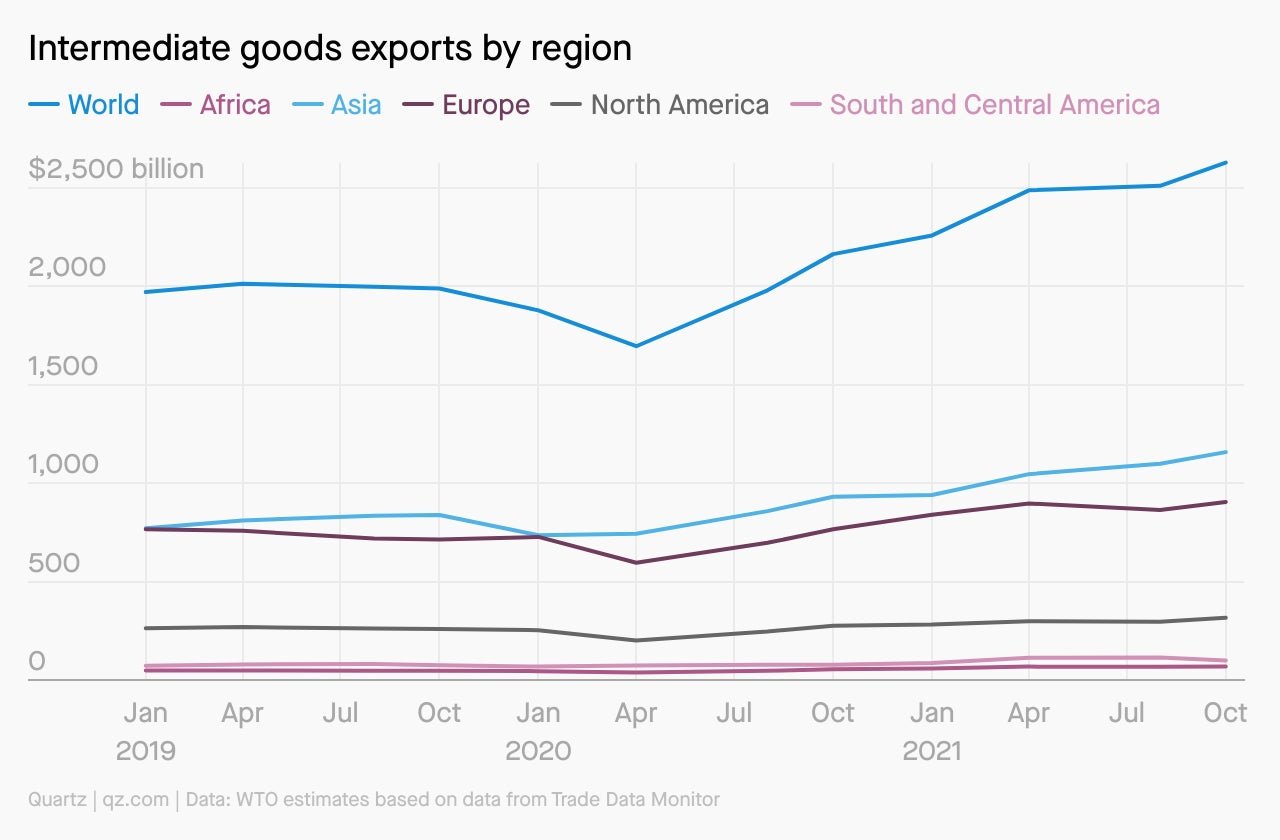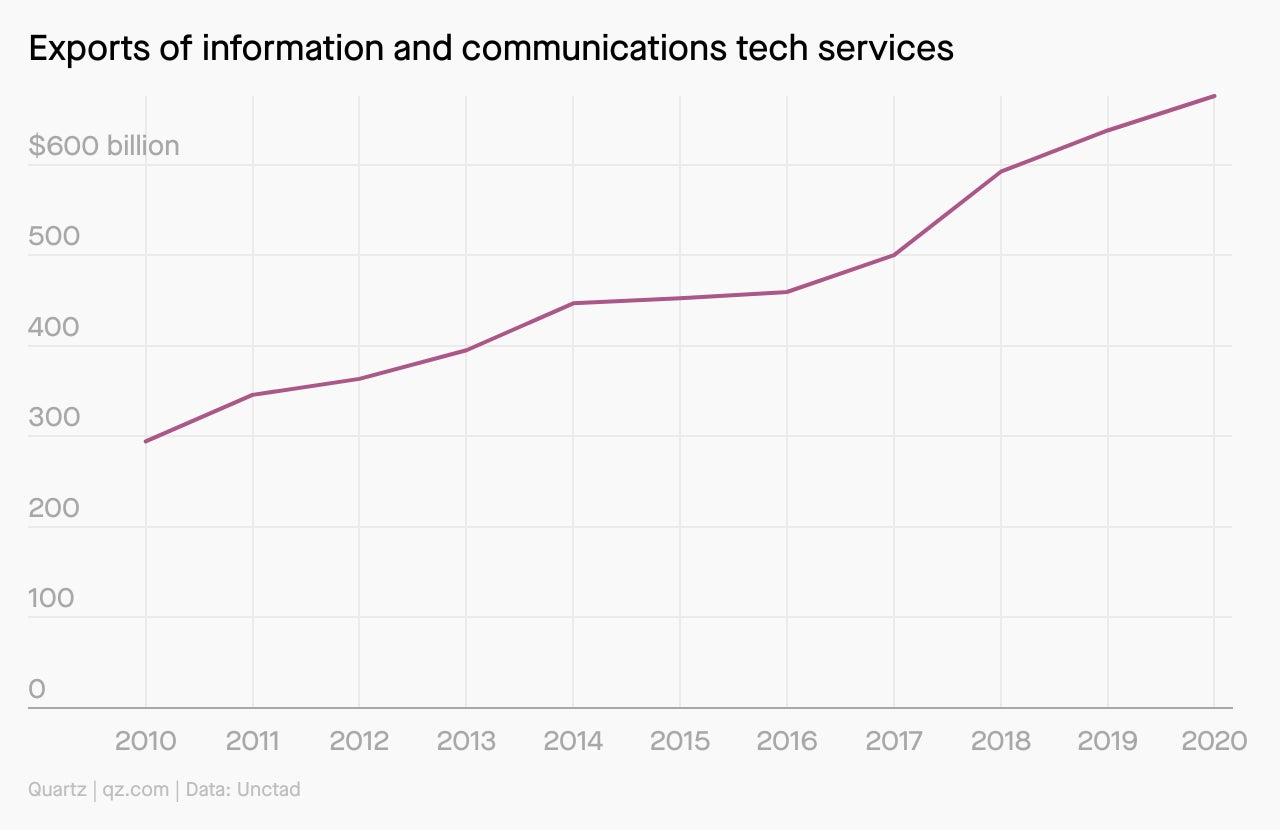✦ Where globalization goes next
Hi Quartz members,



Hi Quartz members,
In Davos recently, the world’s elites had but one question on their lips: Is globalization dying? In brief: No. But certainly now that we’ve gravely gathered around its sickbed, we are better able to point at its frailties and diagnose its ailments.
For decades, we supposed that open markets and digital technologies would make globalization a self-correcting, progressively beneficial force—the tide that eventually lifted all boats. For the champions of globalization, one journalist wrote of this period, “rejecting globalization was like rejecting the sunrise.” But even to assume that in the 1990s and early 2000s, the heyday of globalization, was to ignore job losses, a deteriorating climate, and widening inequalities.
Then came signals that were harder to ignore. First, backlashes inspired by the worst effects of globalization led to narrow nationalisms: Brexit, the rise of leaders like Donald Trump, the frictions between the West and China. Then, the double whammy of the pandemic and the Ukraine war ruptured the one thing globalization was supposed to guarantee: the easy, reliable movement of stuff across national borders. (It is telling that only threats to Western consumption are prompting these urgent anxieties.)
Even in this moment, though, an obituary feels both premature and defeatist. It is impossible to force some genies back into their bottles—to reverse, say, the influence of the internet. But also, to give up on globalization is, as the economist Joseph Stiglitz wrote, to miss the rare opportunity to recognize and fix its problems.
Globalization held out the shimmering prospect of a zero-friction world. In fact, in global economics as in physics, zero friction is near-impossible. Better, then, to start planning to alleviate the new frictions created by globalization—as well as the ones that have been there all along.
Rumors of its demise have been greatly exaggerated
This is not the first time that globalization supporters have fretted about its demise. In the past six years alone, “end of globalization” searches on Google have spiked multiple times.
In 2016, after the Britons voted to exit the EU, many took it as a sign of globalization’s unraveling. The alarm sounded again in 2018, when then-president Donald Trump launched a trade war on various fronts. In 2020, covid triggered a whole new wave of predictions about the collapse of global economic integration, with calls of globalization’s death reaching a fever pitch after Russia invaded Ukraine earlier this year.

What slowdown?
While many point to trade’s shrinking share of global GDP as a sure indicator of globalization’s decline, lots of other data point to strengthening ties between the world’s economies:
Trade of intermediate goods is up. The rise in exports of parts and materials to make finished products means countries are not just exchanging goods, but manufacturing them across borders.

The switch to digital is boosting international trade. Exports of the kinds of communication services that underpin the global economy are on the rise.

Meanwhile, global data traffic jumped by nearly 30% in 2020, to 230 exabytes per month, and is expected to more than triple by 2026.
🔮 Predictions
So what’s next for global trade?
- Trade becomes (geo)political again. After taking a backseat at the end of the Cold War, geopolitics will become a bigger consideration in the global trade of some key products, like oil and semiconductors.
- Friendshoring gets popular. Governments and companies will reconfigure supply chains through allied countries to avoid political kerfuffles.
- Digital trade expands… The international flow of digital products and services will continue to grow.
- …but governments grow more wary of it. To protect data and citizens’ privacy, countries will erect even more digital trade barriers, such as requiring data be locally stored, or simply blocking it.
- The pandemic spurs the rise of a global remote labor market. That could even out wages for remote workers in different countries, though only somewhat.
📚 Keep learning
- The long history of globalization (VoxEU)
- Four scenarios of where globalization goes (World Economic Forum)
- How Africa will reshape globalization (Foreign Policy)
- Chinese scholars on the emergence of a multipolar world order (Discourse Power)
- Harvard economist Dani Rodrik on how to design a different kind of globalization (YouTube)
📣 Sound off
What will be the defining feature of the next iteration of globalization?
—Samanth Subramanian, senior reporter (Davos lurker)
—Ana Campoy, deputy economics and finance editor (wouldn’t mind working from anywhere)
Additional contributions from Mary Hui
One 🏭 thing
Kaushik Basu, a Cornell professor and former World Bank chief economist, has drawn parallels to an earlier moment when global economy was shaken by a backlash against globalization. It was during the Industrial Revolution, and in response to factory soot and child workers.
We overcame (some) of the pitfalls from that transformation through what seemed radical policies at the time—like limiting working hours—and a leap in our understanding of how the economy works. “It may not altogether be a coincidence that the Industrial Revolution overlapped with some of the most important breakthroughs in economic theory, from Adam Smith’s Wealth of Nations in 1776,” Basu writes in a Brookings report. Researchers and policymakers should engage in a similar exercise in imagination to ensure the current form of digitized globalization doesn’t leave the disconnected behind, he adds.